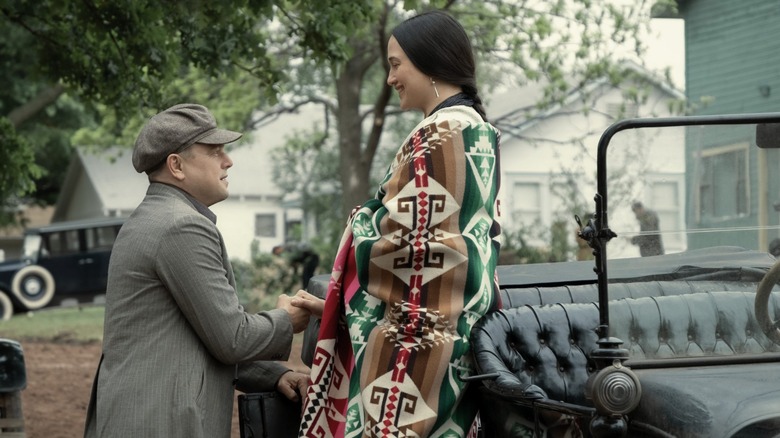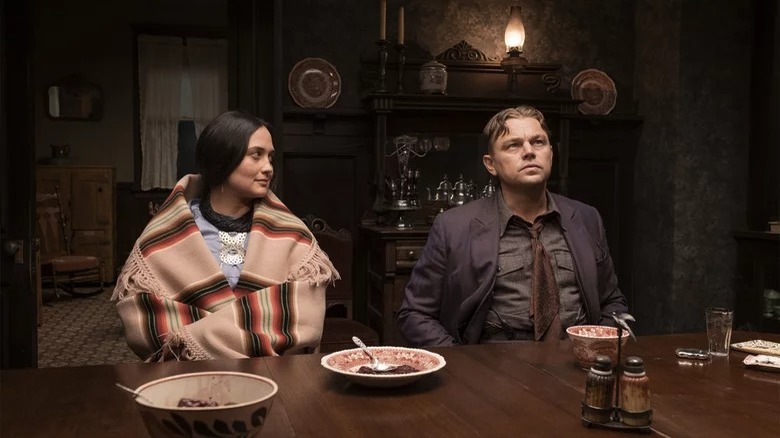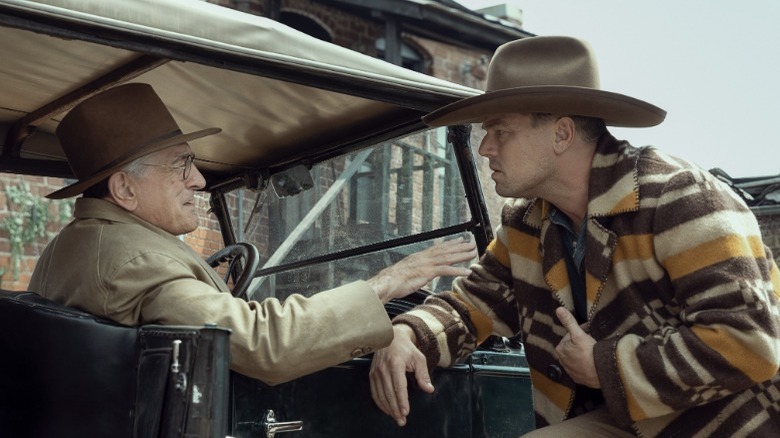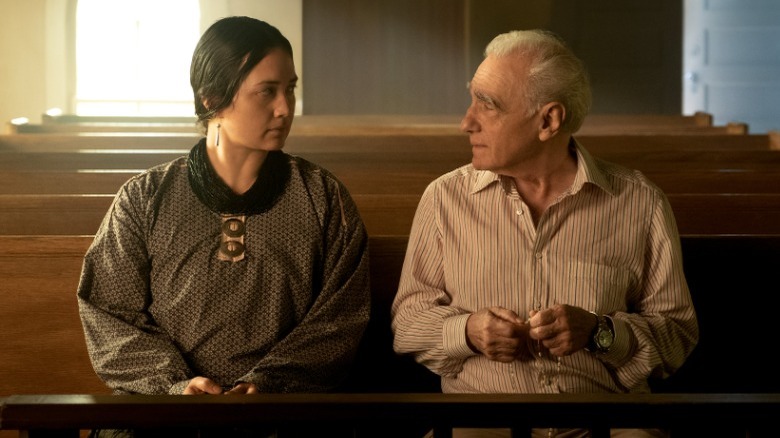With Killers Of The Flower Moon, Martin Scorsese Wanted To Understand Complicity In Genocide [CinemaCon 2023]
Martin Scorsese has tackled plenty of heavy topics across his decades-long career, from the antisocial behavior of a killer in "Taxi Driver" to the Catholic church abuse scandal that fuels the fury of "The Departed" to the death of a messiah in "The Last Temptation of Christ." The director is no stranger to mankind's knack for causing harm, but his latest film, "Killers of the Flower Moon," takes on a dark chapter of history that was uncharted territory for the artist: the genocide of Indigenous peoples at the hands of white settlers.
In a conversation at CinemaCon today, Scorsese spoke with the film's star, Leonardo DiCaprio, about the pressure he felt to do right by the Osage Nation when taking on a true story involving the early 20th-century murders of Indigenous peoples. David Grann's non-fiction book, "Killers of the Flower Moon," takes a detailed look at the killings of Osage members who became wealthy after discovering oil on tribal land — and the FBI investigation that finally discovered the truth.
In a public conversation, DiCaprio asked Scorsese about what his process was like when it came to "telling this incredibly insidious part of our collective history in the actual location where they occurred." According to Scorsese, it had a lot to do with listening to the Osage people who still live in the area today. "When we first got to Oklahoma, the Osage, we had a big meeting with them," Scorsese shared. "And then there was another group of Osage at Gray Horse who made a big dinner for us."
Scorsese met with the Osage Nation
The filmmaker explained that as each attendee of the dinner stood up to speak, he "realized this is the story right here. This is the one." Scorsese said the representatives of the Osage Nation he met with "spoke about what it was like and how the members of their families suffered and were killed, and yet these two people that the film is about were in love." Former Osage Chief Jim Gray spoke about the meeting to RogerEbert.com, recalling that he asked the filmmaker to let the descendants of those impacted by the murders help him. "We want you to make the film that everyone in your industry and the world will point to in the future and say, 'That's the one they got right,'" Gray told the outlet.
Scorsese said he came away from the meeting understanding that the story was about love, murder, land, and greed, and said, "For me, it was [about] immersing ourselves in that world. And the only way to do it was to go there, and be there, and stay there, and be with the Osage." Star Lily Gladstone has spoken about how the film changed with the guidance of the Osage Nation, and Scorsese acknowledged "the big change" to the script when he spoke to DiCaprio at CinemaCon. "My interest was in, as a human being, how some of these guys, some of these people within the story could have done what they did, and yet at the same time accepted in themselves," he said, referring to historical figures involved who claimed to love the Osage people, including DiCaprio's character, Ernest Burkhart.
'If some of us are capable, that means all of us are capable of it'
Scorsese revealed that he stayed in an "oversized" house that once belonged to an oil man during the shoot, and while DiCaprio joked about him spending much of the shoot in the house, there was a reason for that. He shared:
"I stayed there because I was making the movie and when I'm sitting alone in a room or making a movie, you know, to go out to dinners and everything, forget it, I couldn't do it because we were on the edge all the time to make sure we did right by them, you know?"
Scorsese said that in addition to doing right by the Osage Nation, he also wanted to find out an answer to his own question about complicity. The filmmaker recalled a recent conversation he had in which he said, "I wonder how many of us are capable of such a thing. The complicity of a genocide." The person Scorsese was speaking with (the soft-spoken director sounds like he may have been talking to "a certain Rushdie" according to our event transcripts, but we can't be certain) had a wise answer: "He said, 'Well, if some of us are capable, that means all of us are capable of it,'" Scorsese recalled. "Because you want it to go away, we don't want to think about it. And so that's the character we dealt with."
The filmmaker took an immersive approach to the true story
The filmmaker admitted that he looks back at his experience of shooting all his films as inhabiting "another universe," but it sounds like his time spent with members of the Osage Nation for "Killers of The Flower Moon" was especially profound. "We immersed ourselves in it and tried to do right by them as much as possible," Scorsese concluded. Indigenous experiences have long since been exploited or mined as fodder for white savior stories on screen, as Gray said he pointed out during his dinner with Scorsese.
It would be easy for "Killers of the Flower Moon" to become yet another well-meaning but poorly-executed attempt at telling an Indigenous story from the perspective of a white filmmaker. But with someone as legendarily thoughtful as Scorsese behind the camera, and the apparent incorporation of perspectives from the descendants of the real-life victims, one hopes "Killers of the Flower Moon" can help break one of Hollywood's most enduring and frustrating patterns — and accomplish the filmmaker's goal of doing right by Osage Nation.
"Killers of the Flower Moon" is set to premiere at Cannes Film Festival in May 2023 before debuting in theaters on October 6, 2023.



